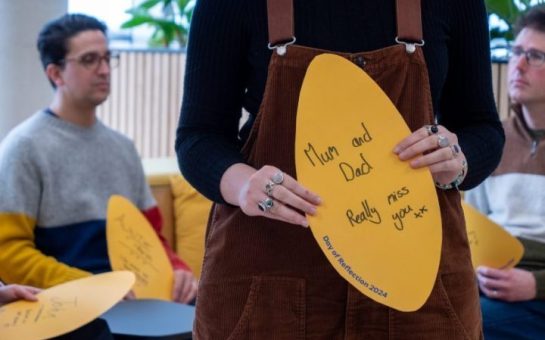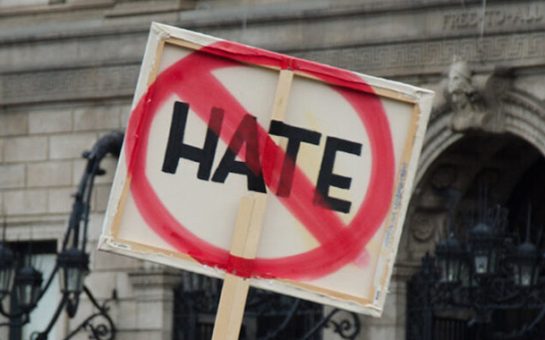![]() By Krystle Higgins
By Krystle Higgins
May 6 2020, 06.45
Follow @SW_Londoner
Emma Campbell was queuing in a Belfast supermarket last month when news emerged of a woman attempting to take her own life after being denied an abortion at a nearby hospital.
“I felt physically sick,” said Emma. “I had feared something like this might happen, but not this quickly.”
Emma, an abortion rights activist and co-convener for Alliance for Choice in Belfast, later discovered the woman had, in desperation, gone to the hospital requesting an abortion after her flight to England had been cancelled amid the Covid-19 travel chaos – only to be turned away.
Abortion rights were extended to Northern Ireland in March for pregnancies up to 12 weeks, however, the Health Department missed the April 1 deadline and with little explanation.
Baffled medical professionals were being told they couldn’t provide terminations – despite knowing the law had changed.
Meanwhile, Emma was taking calls from distressed women for up to 14 hours a day while socially distancing at home with her toddler.
“I was completely mentally and emotionally drained,” she added.
In the days that followed the missed deadline, women and activists looked on in anger as the regional government continued to encourage women to travel to England despite the Covid-19 lockdown.
Flights are being cancelled as fast as we can book them. There’s few places to stay overnight. We need free, safe, legal abortion in Northern Ireland RIGHT NOW. Or actually last week, when you said we would. https://t.co/RlwrYjphHs
— Mara Clarke (@maraclarke) April 6, 2020
The timing was nothing short of calamitous. Disruption to the government’s widely criticised recommended backup plan of travelling to England came just as India and China began curbing exports of key drugs, including abortion pills.
In a cruel twist of irony, women were now faced with the worst access to abortion services in more than 50-years.
It would take just over a week of persistent lobbying until it was announced that medical abortion services were being made available on April 9.
However, the request by campaigners to provide telemedicine services, which would allow women to take abortion pills at home throughout lockdown, have so far still been ignored.
Religious fundamentalism in Northern Ireland has long seen social progression side-lined in favour of staunch conservative views of parties like the Democratic Unionist Party (DUP).
BPAS has been informed of 2 suicide attempts by women needing abortion care in NI. We're also aware of women with serious underlying health conditions who cannot leave their homes due to the risk of #covidー19. These women have no options. #NowForNI
— bpas (@bpas1968) April 9, 2020
Emma said: “We have a lot of more fundamental Christians here, that kind of American 1970s evangelical Billy Graham type.
“For people with these views, seeing a woman having an abortion completely undermines their whole position in life.”
The history of Northern Ireland’s abortion laws dates back to 1861 with the introduction of the Offences Against the Person Act which made ‘procuring a miscarriage’ or assisting a woman to do so punishable by up to life in prison. The law was based on this statute until October 2019.
Social policy lecturer at Ulster University Goretti Horgan said: “The impact of the delay in providing abortion services and keeping women in that kind of limbo during those days in April must have been tortuous.
“When I think about the women during that week who couldn’t access medical abortions here, without knowing if they could travel to England, unable to get abortion pills, I think it must have been torturous for them.
“There was a real concern that women would start to take desperate measures and do very risky things,” said Goretti, a member of Alliance for Choice, has been a key abortion rights campaigner since the referendum, making abortion illegal in the Republic of Ireland, won by popular vote in 1983.
“Complete chaos” was how an abortion policy expert, Dr Fiona Bloomer, described the first week in April.
“I was in contact with medical professionals at the time who were ready to deliver the services but were then told by the Department for Health not to and with no rationale as to why,” Dr Bloomer said.
Meanwhile, campaigners were saying it felt as though the government was “putting their fingers in their ears” in a bid to delay abortions being made available.
Speaking from her Belfast home, Emma added that while the new laws could cover up to 80% of women who need abortions, some of the more vulnerable are those who seek them later in their pregnancy.
Asked when surgical abortions would be made available, she paused and said, “I honestly have no idea.”
For Emma and campaigners like her, while there is relief fewer women will experience the desperation felt by the woman who tried to take her own life only a few weeks previously, the fight is far from over.



